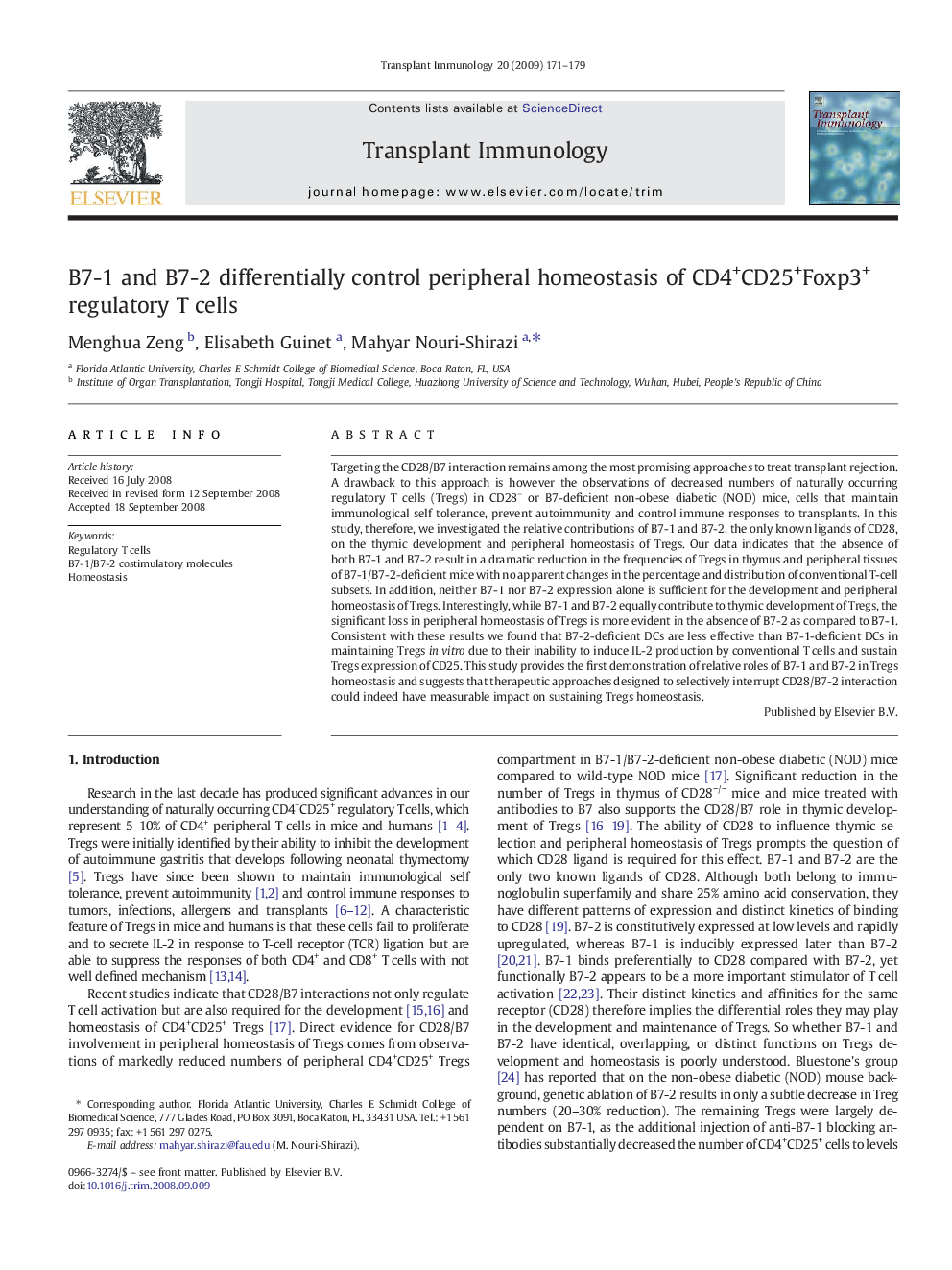| Article ID | Journal | Published Year | Pages | File Type |
|---|---|---|---|---|
| 3392452 | Transplant Immunology | 2009 | 9 Pages |
Targeting the CD28/B7 interaction remains among the most promising approaches to treat transplant rejection. A drawback to this approach is however the observations of decreased numbers of naturally occurring regulatory T cells (Tregs) in CD28− or B7-deficient non-obese diabetic (NOD) mice, cells that maintain immunological self tolerance, prevent autoimmunity and control immune responses to transplants. In this study, therefore, we investigated the relative contributions of B7-1 and B7-2, the only known ligands of CD28, on the thymic development and peripheral homeostasis of Tregs. Our data indicates that the absence of both B7-1 and B7-2 result in a dramatic reduction in the frequencies of Tregs in thymus and peripheral tissues of B7-1/B7-2-deficient mice with no apparent changes in the percentage and distribution of conventional T-cell subsets. In addition, neither B7-1 nor B7-2 expression alone is sufficient for the development and peripheral homeostasis of Tregs. Interestingly, while B7-1 and B7-2 equally contribute to thymic development of Tregs, the significant loss in peripheral homeostasis of Tregs is more evident in the absence of B7-2 as compared to B7-1. Consistent with these results we found that B7-2-deficient DCs are less effective than B7-1-deficient DCs in maintaining Tregs in vitro due to their inability to induce IL-2 production by conventional T cells and sustain Tregs expression of CD25. This study provides the first demonstration of relative roles of B7-1 and B7-2 in Tregs homeostasis and suggests that therapeutic approaches designed to selectively interrupt CD28/B7-2 interaction could indeed have measurable impact on sustaining Tregs homeostasis.
